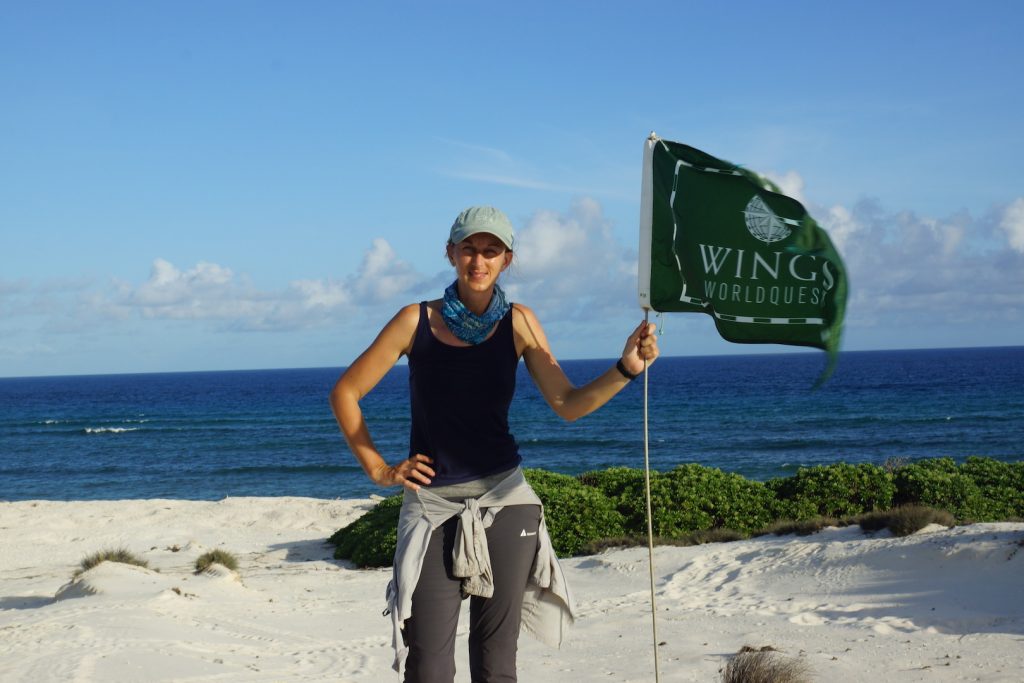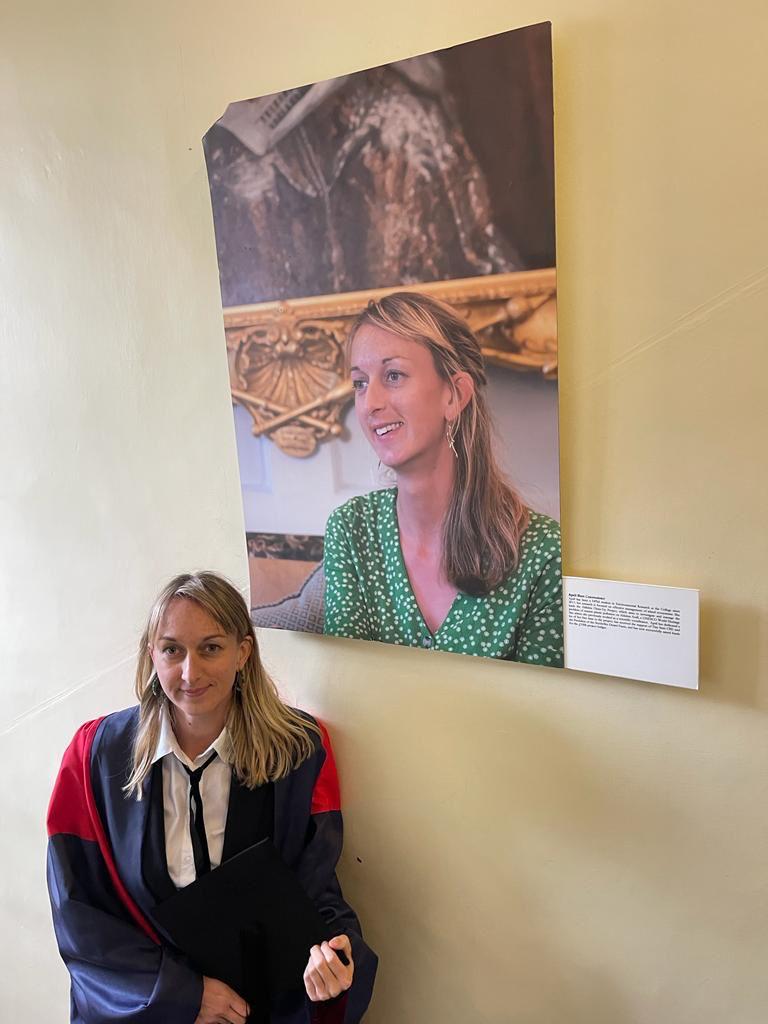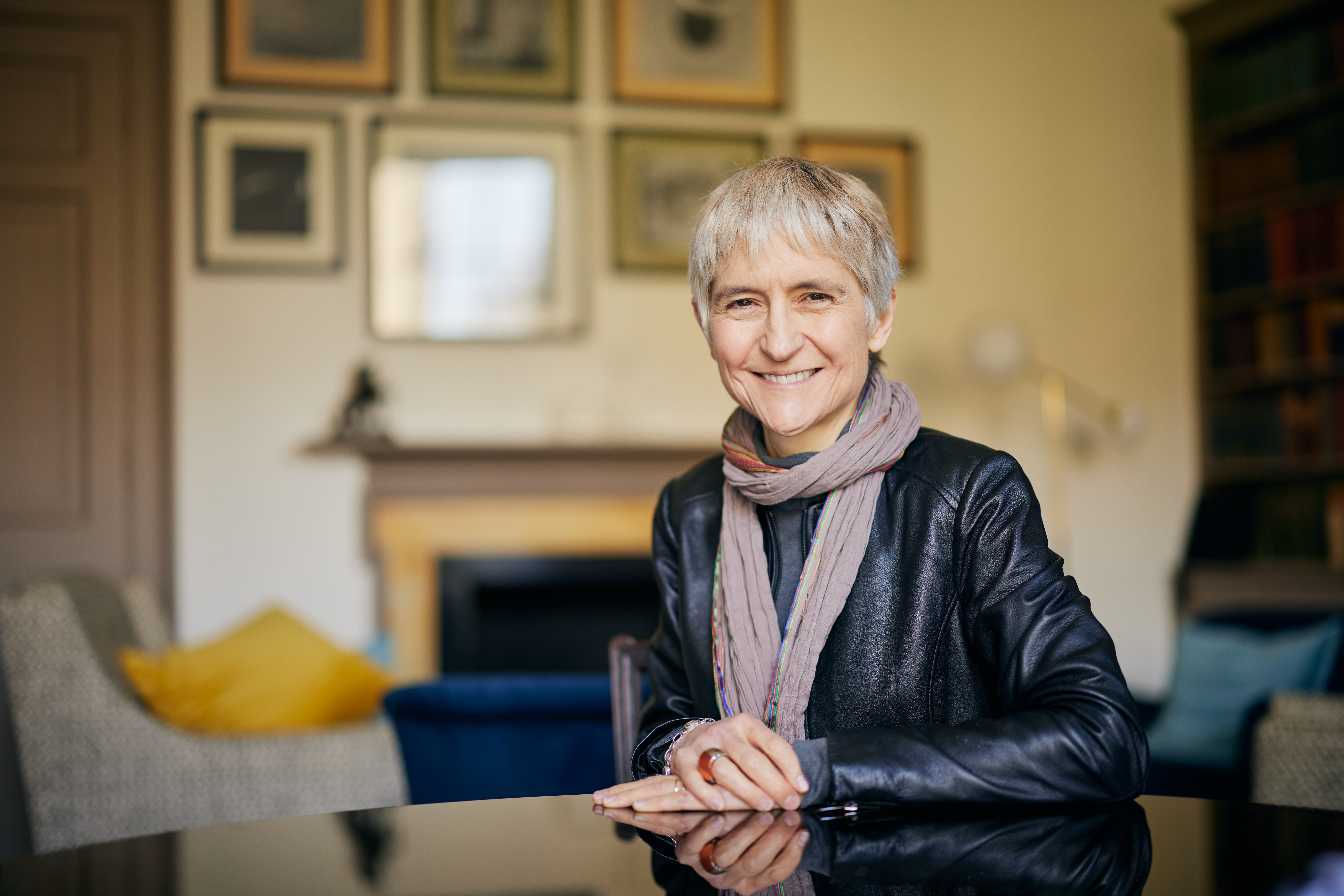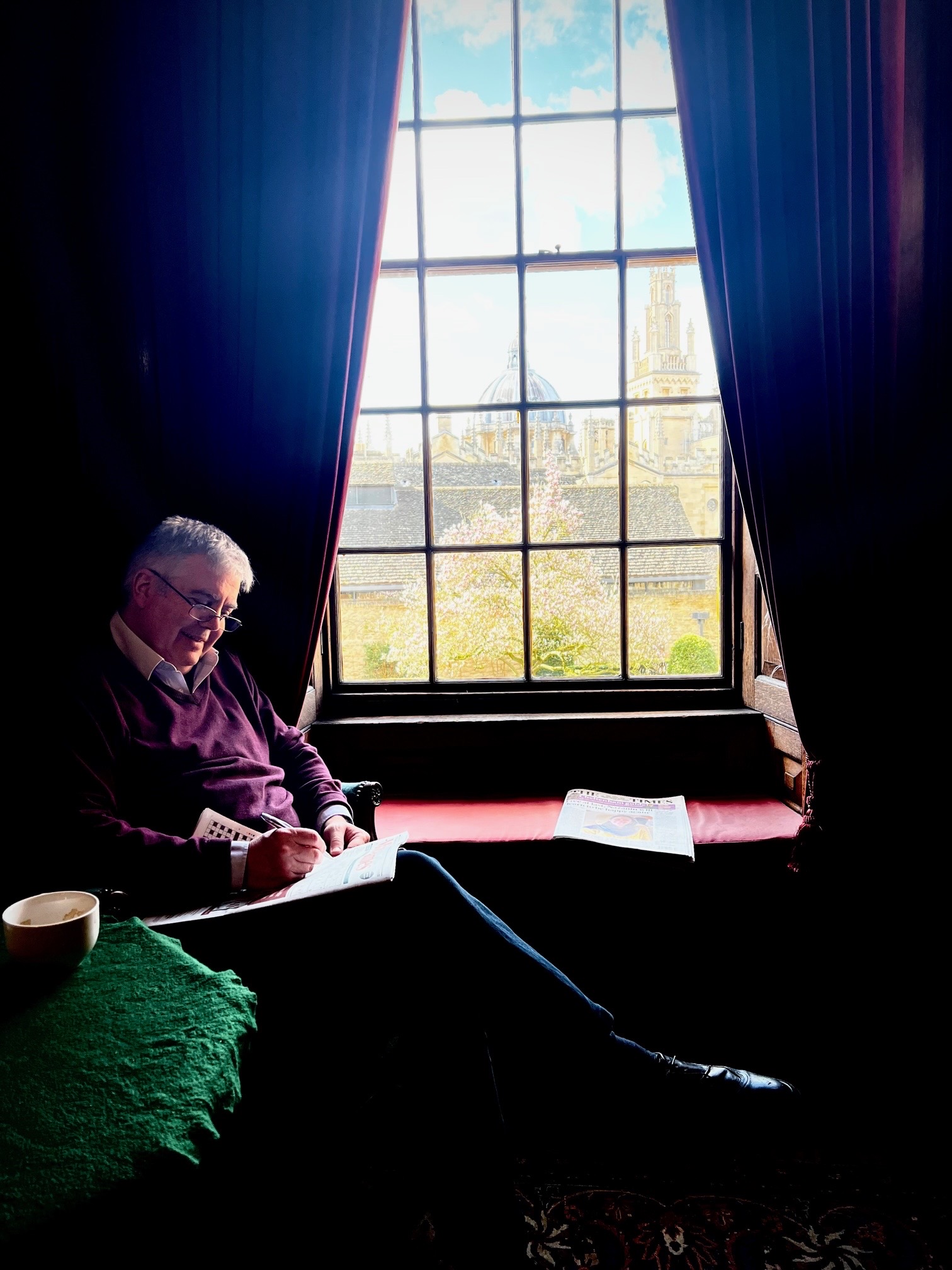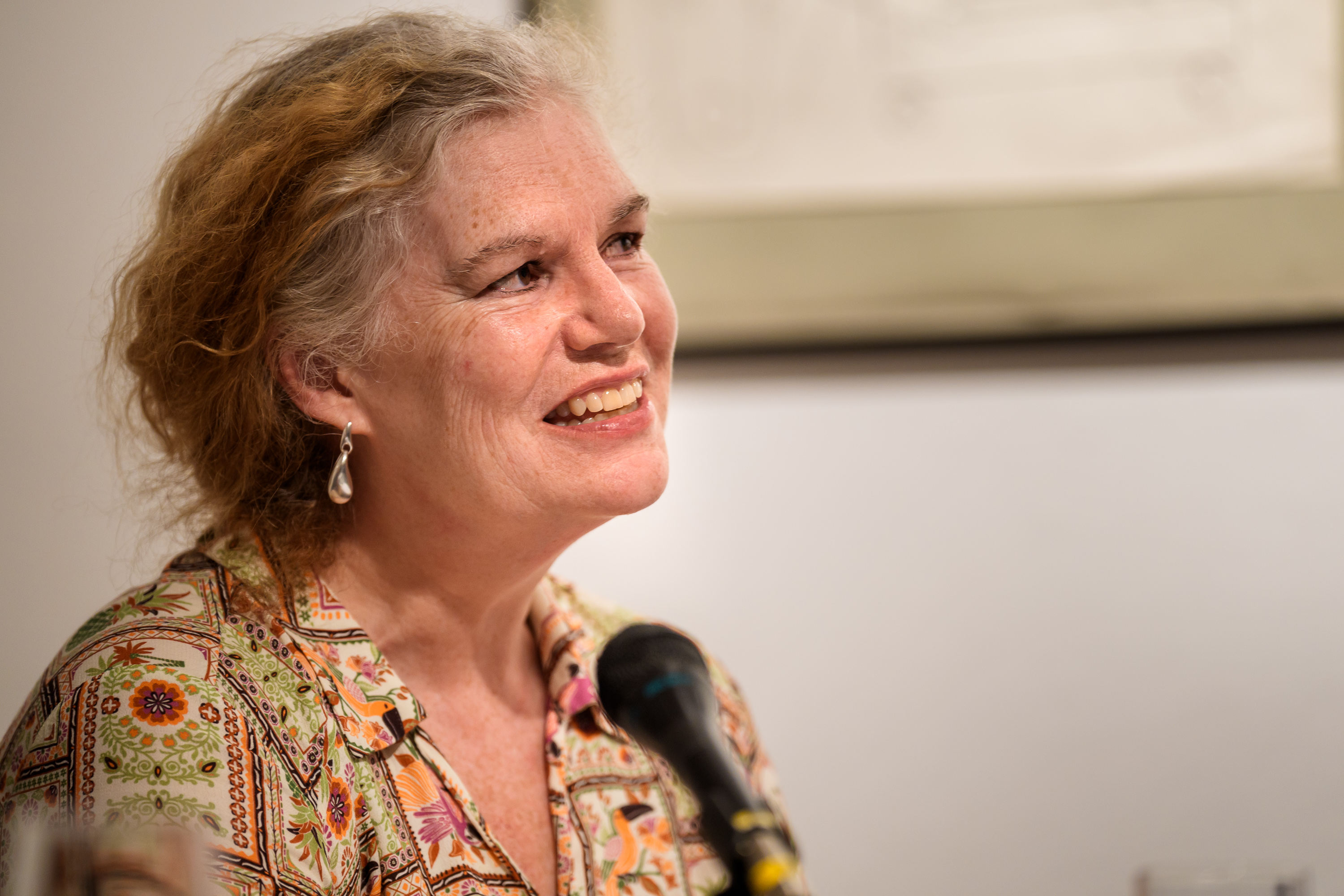April Burt has just graduated from her DPhil in Environmental Research at Queen’s. She spoke to us about her unconventional path to graduate study and how a multidisciplinary approach is needed to conserve biodiversity.
Congratulations on completing your DPhil. Please can you tell us about your path to completing a doctorate in Environmental Research at Oxford?
My path wasn’t straightforward; I left home at 16 and worked at Tesco while trying to get a couple of A levels in English and Drama. Then I worked in a bar for a year where I developed a pretty unhealthy lifestyle. I had a ‘wake-up’ moment and realised it was time to make a positive change, now or never, so applied to go back to College in Cornwall and moved into my tent.
I was encouraged to apply for a course called Extended Science, which is basically a year tagged on to the beginning of an undergraduate degree that gives you the basics in science and maths. This course also provided a student loan which made it possible for me. I passed this course and got into Bangor University to study Marine Biology. Upon leaving Bangor, I worked as a dive guide on the Red Sea coast of Jordan but really struggled to get a job.
I returned to the UK and ended up working night shifts at Age Concern while volunteering at the National Marine Aquarium. This led to getting an internship at a science research station in southern Chile, where I used my aquarium and diving skills and learnt a lot more. While in Chile I got a job in Madagascar on a marine conservation programme, then onto the Seychelles where I worked for seven years in marine and island ecosystem conservation management positions. Often I would be facilitating PhD students with their research in the field and spending my evenings analysing data and writing reports until the generator would go off. Doing this led to publishing some scientific studies and eventually, at the age of 34, helped me to get my scholarship onto the doctoral training programme at Oxford.
What would you say to any young person considering studying at Oxford, whether it be at undergraduate or postgraduate level?
I think I would rather encourage those interviewing prospective students to think about all the non-academic skills that are perhaps undervalued. If you have the capacity then you can learn anything when given the opportunity, so look less at what people already know but what they have had to overcome to get those achievements and what other skills they might have in abundance.
To prospective students I would probably say, do not be put off by the imposing reputation or by a feeling that you are not good enough. There are thousands of students who would have felt that way but went on to succeed at Oxford, myself included.
What has been the biggest challenge in your work so far?
Over the years I’ve had many challenging fieldwork moments but probably the most challenging overall was the Aldabra Clean-Up Project. Alongside my PhD, I co-led a large project which aimed to tackle plastic pollution on Aldabra in the Seychelles. The College collaborated with us and the Seychelles Islands Foundation, and a group of Oxford students joined forces with a group of young environmentalists from the Seychelles. Together we spent over a year planning and fundraising, then in 2019 we conducted a large-scale clean-up operation, collecting 25 tonnes of accumulated plastic pollution from key turtle nesting beaches on Aldabra. Aldabra is a remote, highly protected world heritage site, the terrain is hard, the heat is almost unbearable, but together we achieved a huge amount. The project was broadcast on Sky News and championed by the President of Seychelles.
What aspect of your research has brought you the most joy?
While it’s always nice to see the published, beautifully formatted version of your scientific work online, It’s important to me that the science has a real value and that it goes beyond just the publication. With our plastics research, the paper was one of the most downloaded papers in 2020 from scientific reports and the work has been used as evidence to make changes to national policy in the Seychelles. This brought me joy and the fact that it was a huge team effort with my colleagues there.
You featured in the College’s 2019 Shining a Light exhibition to celebrate 40 years of women at Queen’s. Everyone was asked to choose a word to describe themselves and you chose ‘Conservationist’. Would you choose the same today and why?
I was really shocked and delighted to be part of that exhibition and I would still call myself a conservation scientist; I think this really encompasses the multidisciplinary way in which I work, which is to generate the evidence needed to conserve biodiversity.
What’s next for you?
Since finishing my thesis I’ve been working as a consultant on two projects for the Seychelles Islands Foundation, one of which is kick-starting the planning for what will be one of the largest rat eradications on a tropical island. This will be as challenging as it gets in conservation actions and an exciting opportunity to promote ecosystem health in the face of climate change. I am, however, always looking out for new and exciting challenges.
There was a recent piece from a current student at Oxford about her experience of what’s being termed ‘eco-stress’, the feelings of anxiety and sadness associated with major environmental and climate issues. I know many of us share these feelings. What can we do as individuals to give us hope?
At the height of the pandemic, I was trying to write-up my thesis and grappling with these big environmental problems and the multiple barriers that there are to overcoming them all day. It felt overwhelming at times, but I take my hope from the many people around the world working in the shadows to protect and restore biodiversity. As individuals I think we can each take on small projects to bring about changes, from encouraging your neighbours not to mow the lawn so often, to maybe eating more sustainably and probably, most importantly, to bringing up our children to have the upmost respect for nature and the environment. It is this, and not maths, that I think we all need a bit of extra education in!
What’s your favourite place in Oxford?
I love sitting outside the Western Library with a coffee in the sunshine and watching Oxford life roll by. I also love the peace and tranquillity of Queen’s Lane, among the city chaos, especially when the tree blossoms are out!
